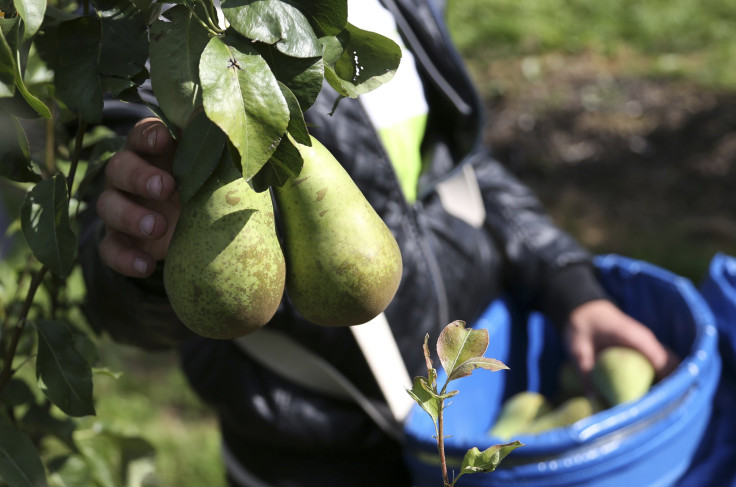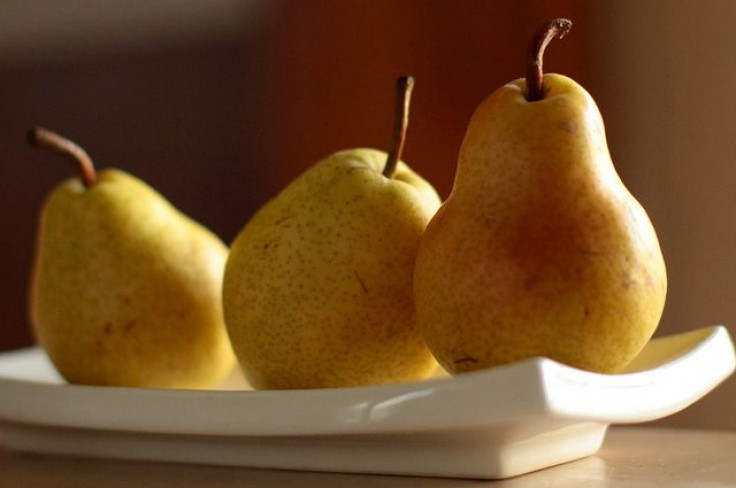Health Benefits Of Pears: Fiber, Vitamin C, And More For Only 100 Calories Per Fruit

People simply don’t eat enough fruit, say two University of Minnesota researchers determined to change this fact. After performing a review of the scientific literature on pears, they say this versatile fruit, which is commercially grown in Washington, California, and Oregon, provides a good jolt of vitamin C plus some necessary fiber... all for a mere 100 calories. What’s not to like?
“The high content of dietary fiber in pears and their effects on gut health set pears apart from other fruit,” wrote Dr. Joanne Slavin, a professor of food science and nutrition, and Holly Reiland, a food science graduate student.

Pears are one of the oldest plants cultivated by man and have been used as a traditional folk remedy in China for more than 2,000 years. The Chinese have used the fruit for its effects as an anti-inflammatory (reduces swelling), anti-hyperglycemic (decreases blood sugar levels), and a diuretic (helps with urination). Home remedies around the world include using pears to cure hangovers, coughs, and constipation. (Interestingly, a survey of older people living in Britain determined that women ate more pears than men — could the elderly British ladies be aware of the fruit's beneficial "restorative" powers?)
While the USDA Dietary Guidelines advise people to eat fruits as part of a healthy diet and suggest they help reduce risk of chronic diseases, little has been published on the health benefits of individual fruits, including pears. Investigating the neglected area of pear research, Slavin and Reiland systematically reviewed studies performed and published between 1970 and today.
Overall, they found many positives, among them, taste. Pears contain fructose and sorbitol, which means they are sweet enough to eat as a snack. A medium pear, the researchers say, will provide you with about 24 percent of your daily fiber needs. The fruit is sodium-free, cholesterol-free, fat-free, and contains 190 mg of potassium.
“Like dietary fiber, potassium is a shortfall nutrient in the U.S. diet,” wrote the authors.
The reviewed studies showed the consumption of pears (along with apples and leafy green vegetables) protected against stroke, lowered the risk of type 2 diabetes, and reduced mortality from coronary heart disease and cardiovascular disease in postmenopausal women. Animal studies suggest that pears may regulate alcohol metabolism, protect against ulcers, and lower plasma lipids.
The authors conclude by saying, since most scientific research either groups pears with fruits or groups them with apples (as "pome fruits"), more study needs to be done on pears alone. In the meantime, bon appetit.
Source: Reiland H, Slavin, J. Systematic Review of Pears and Health. Nutrition Today. 2015.



























